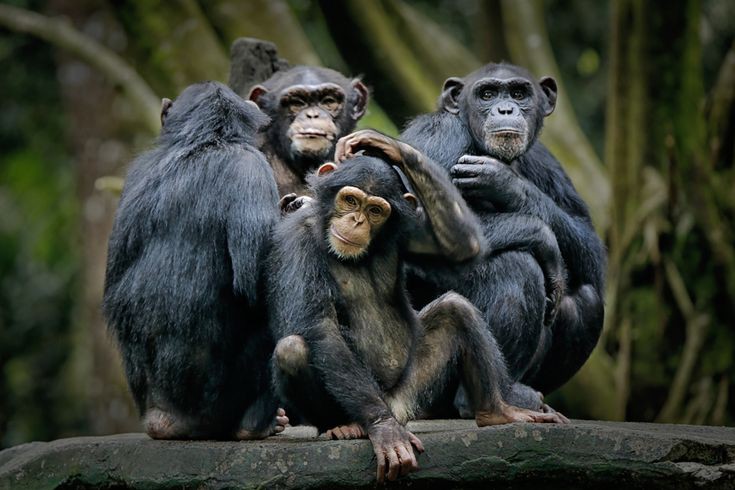Africa, often called the cradle of humanity, is home to a breathtaking array of wildlife and ecosystems. The continent’s rich biodiversity includes a multitude of species found nowhere else on Earth.
From the vast savannas of the Serengeti to the lush rain forests of the Congo Basin, this continent is a biological treasure trove. However, this natural heritage faces a grave threat, mainly stemming from the distressing surge in the number of endangered species.
In this article, we will explore what endangered species are and list some examples of these remarkable creatures found in Nigeria. We will also explore compelling reasons to protect them, ongoing conservation efforts, equip Nigerians with practical steps to become active stewards of our natural world.
Table of Contents
What is an Endangered Species?
Endangered species are those species that are at risk of becoming extinct. In simple terms, this means there’s a real danger that these animals or plants might disappear from our planet forever.
The status of a species as endangered is determined by factors like a declining population, shrinking habitats, and increased threats from activities like hunting, deforestation, mounting threats like poaching, hunting, and other habitat destruction.
Examples of Endangered Species in Nigeria
Nigeria is blessed with incredible biodiversity, but some of our unique species are on the brink of extinction. One such species is the Cross River gorilla, with fewer than 300 individuals remaining. These gentle giants are found nowhere else on Earth.
Another remarkable example is the Nigerian vulture, which plays a vital role in our ecosystem by cleaning up carcasses and preventing the spread of diseases. Sadly, these birds are critically endangered due to poisoning and habitat loss.
Read also: How Planting Trees Can Help and Save Africa’s Economy
Why Should We Protect Endangered Species?
Protecting endangered species is not just about saving cute animals; it’s about safeguarding our environment and our future. Biodiversity is like nature’s insurance policy. Different species interact to maintain ecosystems, ensuring clean air, water, and fertile soil.
When one species disappears, it can set off a chain reaction, disrupting the balance of nature.
Economically, wildlife tourism is a significant contributor to Nigeria’s income. Tourists flock to see our unique species, supporting local communities. Moreover, preserving our natural heritage is a matter of ethical responsibility. These creatures have a right to exist, and our actions can impact their survival.
Read also: 10 Wildlife Conservation Destinations in Africa You Should Visit
Conservation Efforts in Nigeria
Nigeria recognizes the urgency of this issue and has taken significant steps to protect its endangered species and their habitats. Organizations like the Nigerian Conservation Foundation (NCF) and government agencies are working tirelessly to create and manage protected areas.
Success stories include the revival of the Yankari Game Reserve, which has seen an increase in wildlife populations. Conservation efforts include;
-
Legal frameworks for wildlife protection
Nigeria and Africa’s incredible biodiversity, with its iconic species like elephants, rhinos, and lions, is a global treasure. However, these majestic creatures face numerous threats, from habitat loss to poaching. To protect them, robust legal frameworks are essential.
Legal frameworks for wildlife conservation in Africa and Nigeria are crucial for preserving our natural heritage. They provide a foundation for conservation efforts and international collaboration to safeguard endangered species for future generations.
Why do legal frameworks matter?
Legal frameworks are like the rules of the game. They set the boundaries for how we interact with wildlife. In Africa, countries have laws and regulations that prohibit activities like hunting endangered species or trading their parts. These laws aim to deter poachers and wildlife traffickers while promoting conservation.
Nigeria and African nations are increasingly investing in law enforcement, technology, and community engagement to strengthen these legal frameworks.
Read also: 10 African Countries Where it Snows
-
International agreements
Africa is part of international agreements like CITES (Convention on International Trade in Endangered Species of Wild Fauna and Flora). CITES helps to regulate the international trade of endangered species and their parts. Countries work together to ensure these species are not exploited for profit.
Become a part of our community of young Africans who are making waves and breaking barriers in their spheres. Join us here.
The Importance of Education and Outreach: Empowering Nigeria’s Conservation Champions
Conservation is not just the responsibility of governments and organizations; it’s a shared duty that starts with awareness and education. In Nigeria, where unique wildlife thrives, educating communities and fostering outreach are vital pillars of conservation.
-
Raising awareness
Imagine a world where everyone understands the importance of endangered species. Education and outreach programs aim to make this a reality. They teach people about the incredible biodiversity in their backyard, fostering a sense of pride and responsibility.
-
Environmental education in schools
African countries are increasingly incorporating environmental education into school curricula. These lessons help children appreciate their natural surroundings and instill conservation values from a young age. The youth are the future stewards of Africa’s wildlife.
Read also: Informal Education in Nigeria: An Overview
-
Community engagement
Conservation isn’t effective in isolation. Local communities often share landscapes with wildlife. Outreach programs engage these communities, seeking their support and sharing benefits from conservation efforts, such as ecotourism income.
-
Advocacy and empowerment
Education doesn’t stop at schools. It includes advocating for stronger conservation policies and empowering individuals to become conservation champions. This can lead to grassroots initiatives and community-led conservation projects.
Education and outreach are potent tools in the conservation toolkit. They inspire the next generation, build community support, and create a network of passionate advocates working together to protect Africa’s endangered species.
Conclusion
In the heart of Africa, we hold the responsibility of protecting not only our endangered species but also the fragile ecosystems that support them. Preserving these treasures benefits us all, ensuring a healthy environment, sustainable livelihoods, and a legacy for future generations.
Let us join hands, celebrate our biodiversity, and take action to safeguard these irreplaceable gifts from nature. Together, we can ensure that Africa’s endangered species thrive for generations to come.
Oluwanifemi Akintomide edited this piece.
Do you want to stay updated on the current changes and developments in Africa? Subscribing to our newsletter would help you with that. Do so here.
About Author
- Michael Olorunwumi, is a final year student at the University of Ibadan, studying English language and Education. He is an SEO content writer, spoken word artiste, poet, Kampala textile designer, and rapper.
Latest entries



 TechnologyJanuary 7, 2024Cache Memory: What it Means and How it Affects Your Gadgets Performance
TechnologyJanuary 7, 2024Cache Memory: What it Means and How it Affects Your Gadgets Performance

